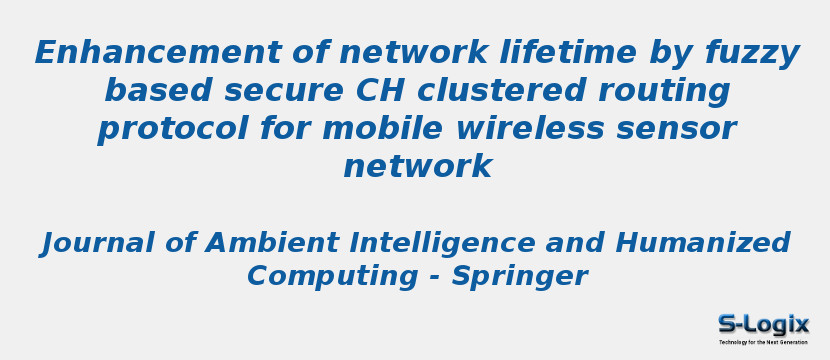Research Area: Wireless Sensor Networks
Mobile Wireless sensor network conveys an innovative archetype of real time systems by means of restricted computation, transmission, storage, and vigor resources utilized for massive range of appliances wherever traditional system is frequently infeasible. Sensor nodes are compactly organized in an aggressive atmosphere to observe, identify, and scrutinize physical occurrence and utilized significant quantity of energy during broadcasting information. It is unfeasible and occasionally impractical to change battery and to preserve wider network lifetime. So, duration of battery and energy preservation is an exigent complication. Exact ClusterHead determination is one of the concerns that can condense energy utilization considerably. Low-energy adaptive-clustering hierarchy (LEACH) is most prominent hierarchical routing technique, ClusterHead is nominated in alternation basis related on probabilistic threshold cost and CHs are permitted to transfer events to basestation. In proposed FCHIDS tactic, a Outstanding-ClusterHead is nominated among CHs in cluster that can transfer information to mobile basestation by deciding appropriate fuzzy factors outstanding battery power, basestation mobility, clusters centrality and intrusion detection system. Fuzzy assumption engine is utilized to decide Outstanding-ClusterHead. The consequences are from simulating NS-2 and illustrations shows that proposed FCHIDS tactic achieves upto 5% superior than LEACH technique in provisions with partial amount of nodes active, enhanced constancy, and improved lifetime. Consequently it achieves upto 5% reduction in initial node expires from network than LEACH technique.
Keywords:
Author(s) Name: D. Rajesh & T. Jaya
Journal name: Journal of Ambient Intelligence and Humanized Computing
Conferrence name:
Publisher name: Springer
DOI: 10.1007/s12652-021-03170-4
Volume Information:
